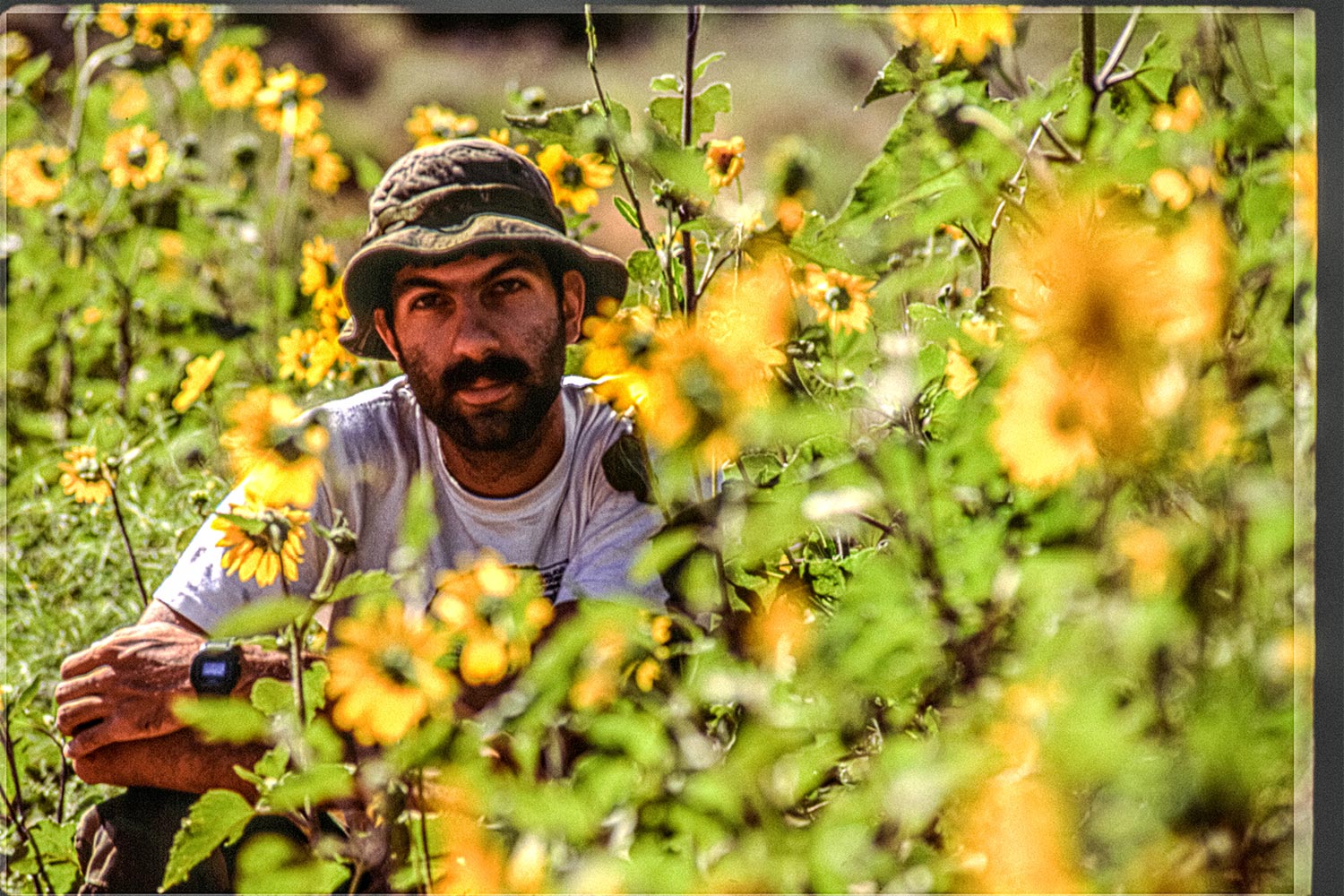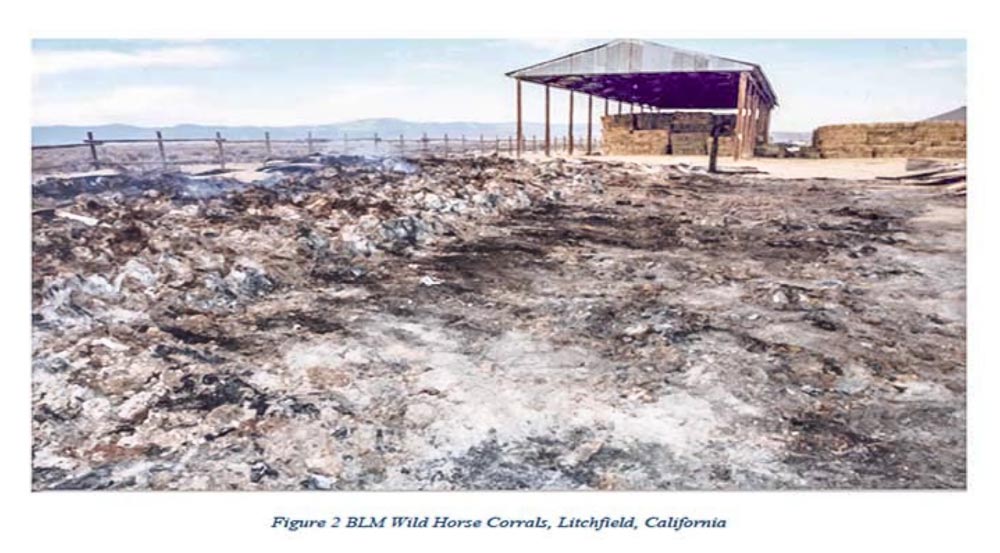En route to Havana, Cuba, on May 21, 2018, a man identifying himself as “Yousef Deba” was stopped by El Salvadorian authorities after he showed his passport and travel documents. He was photographed, his eye was scanned, he was twice fingerprinted and his electronics were searched.
His biometric data matched information on an outstanding warrant from Oregon for a Joseph Dibee. He was allowed to board a plane to Havana, where he was arrested by Cuban agents, who contacted the U.S. and agreed to turn him over to federal authorities.
The U.S. had finally captured one of the last remaining fugitives from the Northwest ecowars of the late 1990s, an outbreak of fires and other sabotage that gripped the region’s attention. In previous years 15 other people surrendered or were caught by federal agents who branded the young activists as “terrorists,” though they never injured or killed anyone.
This is the story of Dibee’s years on the run, a complex tale of international intrigue and betrayal. Except where noted, it’s based on court documents obtained by Eugene Weekly.
The suspects in the case were believed to be part of an ecosaboteur group the feds say was known as “The Family,” and consisted of members of the Animal Liberation Front (ALF) and Earth Liberation Front (ELF).
When he was arrested, Dibee had been a fugitive for more than 12 years. Currently released to a family member in Seattle, Dibee faces federal charges in Oregon, California and Washington in connection with an alleged ecosabotage conspiracy and arsons between 1997 and 2001.
The FBI and Joint Terrorism Task Forces investigation was called “Operation Backfire.” The investigation linked The Family to more than 40 criminal acts and resulted in federal grand jury indictments of 17 people. Court records show several members — Dibee not included — were accused of arsons in Eugene that destroyed property at Childers Meat Company, a police department substation on 13th Avenue near the University of Oregon and Joe Romania Chevrolet Truck Center. The group targeted businesses involved in what it believed to be acts of environmental destruction or profiting at the environment’s expense, hoping to spark change among others in the industry, according to court testimony in 2007 by Terri Wood, an attorney for Stanislas Meyerhoff. Meyerhoff was originally sentenced to 13 years, one of the longest sentences, for his part in the ecosabotage.
Court documents paint a picture of Dibee as a sensitive young man who loved nature, who inherited his father’s love for the outdoors and learning. His father encouraged him on a mushroom picking trip to hunt rabbits with an air rifle. Dibee was profoundly saddened by the death of the rabbit, which he cooked and ate so it wouldn’t have died for no reason. He never hunted again.
His parents once took him to see a hidden spot in the Cascades near Sultan, Washington, where he would return dozens of times. There he began to conceive of himself as an environmentalist.
Dibee visited the spot for the last time two years later and found the forest unrecognizable, logging having wiped out every trace. He thought there had to be thousands of people with similar stories, a court filing says. “People whose own special places had been destroyed because of greed and mendacity.”
That was the moment Dibee decided he had to do his part to stop environmental destruction.
Dibee attended Seattle University part time while in high school and became an outdoor guide. He led student trips to public lands to show his peers the impacts of forest mismanagement. After graduating with a civil engineering degree, Dibee worked at the Washington Department of Ecology and later became a construction manager for a wastewater treatment plant. He used the last of his savings to rent a home computer for a month and a half, teaching himself Microsoft Networking on Windows 3.1 in 41 days and landing a job at Microsoft in the late 1990s.
All the same, he suffered from a deep sense of disillusionment.
It was at that time he heard about the plight of wild horses in the West, where the government was rounding up the horses, slaughtering them and exporting the meat for human and animal consumption.
Drastic Measures
Wearing black clothing, Dibee and several others traveled in a van to the Cavel West horse meat packing plant in Redmond in July 1997, the feds say. One stayed with the van as a lookout and another listened to radio traffic on a police scanner while Dibee and the rest entered the slaughterhouse, where they placed timing devices built by Dibee. They returned to the van, poured acid on their clothes to destroy them and drove to Eugene.
The meat packing plant was destroyed by fire. The group later claimed responsibility in a letter to The Oregonian. Dibee is also accused of helping destroy the Bureau of Land Management’s wild horse corrals near Litchfield, California, in 2001.
In 2005 Dibee and an attorney met with the federal government in Seattle. The government explained the evidence it had gathered incriminating him in an arson that destroyed the horse slaughterhouse, and asked him to cooperate with the investigation.
Not yet charged with any crimes, Dibee was told that he would be charged with the destruction of an energy facility — “a crime that he had nothing to do with,” he said — and could face 30 years in prison unless he cooperated and agreed to testify against other activists.
He contacted his Syrian-born father, who suggested he go to Syria.
Dibee went home and burned the incriminating evidence in his fireplace, according to court testimony from Assistant U.S. Attorney Geoffrey Barrow in 2019. A friend drove him to Mexico, and he flew from Mexico City to Beirut and to Syria.
Dibee argues in a filing that he “did not flee from a pending court date or an indictment that had been filed against him.” He left the country “because what he had been told by the government was so far removed from a reasonable resolution that it would be impossible … to ever achieve justice.”
In early 2006 Dibee was indicted on charges of arson, conspiracy to commit arson and conspiracy to commit arson and destruction of an energy facility. In 2007, 10 other participants in the ecosabotage received sentences of three to 13 years in the federal courthouse in Eugene. Still others were sentenced later.
Overseas
Dibee arrived in Syria on Dec. 10, 2005.
Dibee taught computer science and security between 2006 and 2009 at the University of Kalamoon in Dayr Atiyah, Syria, where he created and eventually headed the environmental and civil engineering department. He later began working on a solar energy project he expected would produce 35 percent of the energy in the country, as well as provide power for seven million people, according to Dibee’s court testimony.
Tensions were growing in Syria, and for a time, Dibee managed to steer clear of trouble. But Syrian security officers soon demanded that he help them obtain a large quantity of U.S. dollars stolen from Iraq to make them electronically transferable. One night, terrorists breached the security wall at the complex, shooting and killing one of Dibee’s university colleagues.
Dibee fled to Moscow, Russia.
Dibee went into the biodiesel business in 2010 after finding Russia was behind on recycling oils to make biodiesel. He met a Syrian man with Russian citizenship, who he paid to help him obtain longer-term residency. Dibee later found out the man ran human trafficking operations from Syria and North Africa into Scandinavia, and he tried to enlist Dibee’s help in flying Arab refugees illegally into Finland.
“Criminal elements were closing in on him just like in Syria,” his court filing says. Dibee left Moscow in 2013 and eventually settled in Krasnodar, a city of about 800,000 people, where he later married.
He worked odd jobs writing software and struggled to support his new wife and stepson, later traveling to Ecuador with an idea to start a business that would export coffee to Russia in an environmentally friendly way.
“It seemed as if [Dibee’s] life was turning a corner,” his motion for release says. “He was happily married and for the first time experiencing the joy of being a father. The coffee business looked very promising. He had a valuable consulting contract with a gold mining group to design and engineer a mechanical separator that would be profitable and avert an environmental disaster.”
Eight long days
But Dibee ran into trouble when he tried to visit Ecuador. During a long layover in Havana, he was arrested by Cuban agents.
He was taken to a detention facility, where he spent two or three hours in an outdoor cage before a Cuban military intelligence officer took him to a room and “aggressively interrogated” him in a mix of Russian, Spanish and English, his court filing says.
After Dibee refused to confirm he was in a photograph he was shown, the officer ordered others in the room to remove his clothes and conduct a full body search, one placing an assortment of hand tools on the table next to him. “The Cuban intelligence officer assured [Dibee] that they would use the tools on him unless he confirmed his identity.”
Dibee confirmed he was the person in the photo, and officers photographed him and ran DNA swabs through his mouth. Dibee was taken to a small corner cell, where he stayed for several days with no windows, no water and no toilet — “only a hole in the ground” — and he estimated the temperature in the cell was above 110 degrees Fahrenheit.
“Sitting alone on a concrete bench, the only sounds Joseph Dibee could hear were the buzzing mosquitoes and the sweat from his face splashing on the filthy concrete floor. After the 40th or 50th insect bite, he lost the will to swat the bugs away. The next three days were a haze of dehydration and hallucinations while being savaged by unimaginable heat,” the court filing says.
Dibee passed out numerous times and recalls a nurse checking on him in his cell, “maybe to ensure that he was not dead,” his filing says. “Somehow, Mr. Dibee lived through that for three days.”
A nurse on the fourth day gave Dibee what he thought was a small cup of juice that made him feel drugged — “perhaps with a tranquilizer or antianxiety medication” — soon after drinking it. He recalls the Cuban intelligence officer telling him he needed to “tell us about the fires” if he wanted water.
It didn’t take long for Dibee to start fabricating a story about robbing and burning banks, telling them he had been involved with stolen cars, partnered with long-deceased outlaw Jesse James and set fire to Microsoft. He lied as much as he could in hopes that he could stay in the cool room and drink water as long as possible.
Cuban authorities rewarded him for cooperating by moving him to a different cell, which was only about 90 degrees and had a faucet that was turned on for about 15 minutes once a day. A couple of days in, the intelligence officer came to Dibee’s cell and accused him of lying, according to the court filing. “He told [Dibee] that unless he told the truth he would throw him in the ocean, and no one would ever know what happened to him because no one knew he was there.”
The officer gave Dibee a statement in English containing accurate details about the case and implicating Dibee, which he signed immediately out of fear for his life, his court filing says.
“I can’t get an answer from the government about how they did that,” Matthew Schindler, the attorney representing Dibee, tells EW. Dibee was moved to another cell and given food for the first time since he arrived at the airport days prior. Dibee was sure it was dog food, but “anything was welcome at that point. He was no longer being taken to an interrogation room and questioned. [Dibee] had disappeared off the face of the earth for eight days courtesy of Cuban military intelligence.”
On day eight, covered with scabs and insect bites and rail thin from starvation and dehydration, Dibee was taken from his cell and allowed to call his wife to let her know he was alive and detained in Cuba.
Then he was driven back to the airport, where he was handed over to an American rendition team, his filing says.
“Get on the plane,” the team said. “We can do this the easy way, or we can do this the hard way.” As U.S. authorities filmed, Dibee shuffled aboard the plane. Two federal agents tried to interrogate Dibee on the plane to which he responded that he was represented by counsel. “The interrogation ended,” the court filing says. Hours later, Dibee was turned over to U.S. Customs and Department of Homeland Security officials at the airport in Portland.
The U.S. government hasn’t yet clarified how it coordinated with a foreign nation it has no diplomatic relationship with to arrest him. In court testimony, Dibee referred to the time he was “kidnapped in Cuba.”
“He was not kidnapped in Cuba,” a federal prosecutor said in court. “He was arrested on an arrest warrant out of this district.” The government asked the judge to keep him detained.
Court whiplash
Dibee took the stand at his Dec. 13, 2019, hearing in Portland U.S. District Court, his testimony detailing the environmental work he had been up to for the previous 12 years.
“The charges leveled against me are from three lifetimes ago,” Dibee said. “There are three different countries. They’re three different languages. They’re three different cultures ago. And, you know, as time goes by, people develop. They develop intellectually, they develop socially, they change their persona for the better, I should hope. And I can’t say that I’m the same person today that I was a year ago. I — certainly not two decades ago.”
For the last 15 years of his life, Dibee said, he had tried to effect positive change through good environmental and financial practices.
Barrow said at the hearing that it was clear Dibee could make valuable contributions to society. “But he was not living in Russia and Syria for business opportunities,” he said. “He wasn’t there for the research opportunities that were afforded. He clearly knew of the charges against him.”
Federal Judge Ann Aiken granted Dibee’s pretrial release, placing him on house arrest. “I’m going to give you that acknowledgment today that I think you are a different person and you have enormous skills to provide and can do that while you’re on pretrial release under these conditions,” she told Dibee at the hearing.
Days later, the Ninth Circuit Court of Appeals overturned the order releasing Dibee, saying he posed a risk of flight and danger to the community.
Trouble behind bars
Dibee was in jail in Portland on Dec. 30, 2019, when an inmate “blasted” him in the side of the face from behind, breaking his jaw, he says. The inmate — described as a neo-Nazi prison gang member — had reportedly heard that Dibee was an “Arab terrorist” who took down a power transmission line near Bend and was targeting that community.
The inmate was quickly identified but has not been prosecuted, according to the court filing, and it wasn’t until three days after the incident that Dibee was admitted to the Oregon Health & Science University emergency room. “The jail ignored the seriousness of Mr. Dibee’s injury for 72 hours while Mr. Dibee suffered excruciating pain from a displaced fracture in his jaw,” the filing says.
Judge Aiken later said it was unacceptable that the court was not aware the attack happened until over a week later, adding that “anybody with a right mind” would have taken steps to protect Dibee given the heavy news coverage of the case. “I do not want to get a call that he was found hung or dead in the prison cell.”
Defense investigator Erin Howell said in a report that Dibee had lost 17 pounds as a result of the attack less than a month after it happened and the jail consistently did not provide enough food, according to the court filing. The report also notes his physician’s “deep concerns” about Dibee not getting access to physical therapy, the filing says.
In July 2020, U.S. Marshals took Dibee to a federal courthouse, where he remained for nine hours locked in a room with residual CS gas from recent protests downtown, according to the motion for release. Having suffered from asthma since he was a child, Dibee had his first serious asthma attack in years after returning to jail that night. The court filing says he continued to suffer respiratory distress over a month after being exposed to the tear gas.
The jail reported to the court that Dibee needed to be moved out of the medical unit because it was getting full, Schindler tells EW. “If no one’s sick, why is medical getting full?” he recalls asking during the hearing.
Dibee was first transferred to a mental health isolation unit in the jail before being moved to another unit. Schindler says he received a call from an investigator who said Dibee had lost his sense of taste and smell and tested positive for COVID two to three days later.
“At least three inmates became sick because of the situation with Joe. You know, there was no rapid testing. There wasn’t sufficient PPE, there wasn’t sufficient sanitary supplies. I mean, they just didn’t do shit,” Schindler says. “It’s kind of a brilliant strategy. If you don’t test, no one’s sick.”
Third time’s a charm
Shackled and sitting on a metal stool in the Mark O. Hatfield U.S. Courthouse in Portland, Dibee again appeared in court on Jan. 8, 2021, following his third motion for release. Aiken said at the hearing she was shocked to learn that Dibee had been moved out of the medical unit over her objection while recovering from his injury, then contracted COVID-19 and was sent back to the unit.
Aiken said that while the charges against Dibee were serious, she didn’t believe he was a danger to the community at that point. She ordered Dibee be released to live with his sister pending a negative COVID-19 test and, after completing quarantine, he be allowed to live with and care for his father. He will be subject to GPS monitoring, computer monitoring software installed on his phone and computer, and home confinement with limited exceptions.
Aiken said at the hearing she was disappointed that there was no updated COVID test result for Dibee at the time of the hearing. “I want that test done and I want to know his status,” she said. “He’s entitled to have the medical care, and I don’t want him moved out of the medical unit until he’s released.”
Dibee was released from custody Jan. 12. A status conference is scheduled for March 10 and a jury trial is set for March 16.
Josephine Overaker remains the only fugitive from the Operation Backfire investigation. At this point, all of the other people indicted in the ecosabotage, who are still alive, have served time and been released.



